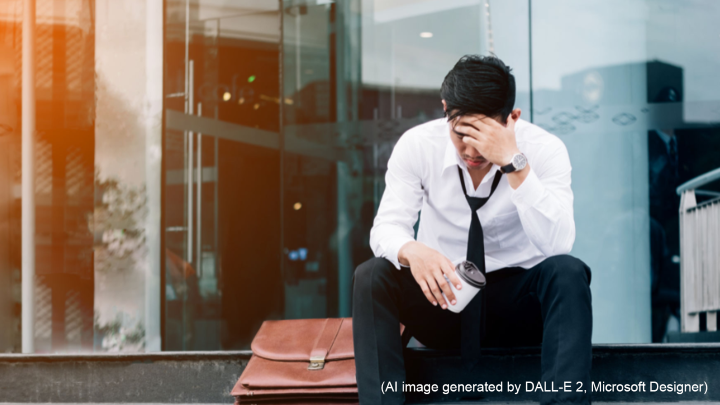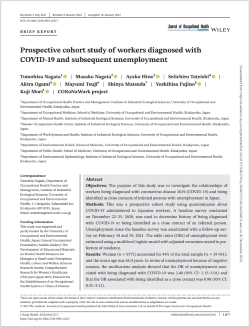#0142 Prospective cohort study of workers diagnosed with COVID-19 and subsequent unemployment

Careers in the Time of COVID-19: Positive Diagnosis and Subsequent Unemployment
The global effects of the coronavirus disease (COVID-19) pandemic have been wide-ranging and seemingly inescapable. Owing to its massive public health threat, COVID-19 has necessitated restrictive measures and lockdowns around the world, hurting the economies of all affected countries. One profound impact of the COVID-19 pandemic has been the increase in unemployment rates worldwide. A major contributor to these increasing rates has been business shutdowns. However, absenteeism because of self-isolation and stigma after a COVID-19 diagnosis could have also played a role.
Nagata et al. set out to understand if a positive COVID-19 diagnosis or close contact with an infected person was associated with subsequent unemployment. To do this, they conducted a questionnaire-based survey among a large group of 19,941 Japanese workers (56% men) with an average age of 48 years. In the first survey—which was conducted between December 22 and 25, 2020—the researchers asked participants if they had a history of a COVID-19 diagnosis or had been identified as a close contact of an infected person. Two months later, they administered a follow-up questionnaire, which assessed the employment status of all participants.
Further analysis of the obtained questionnaire data revealed no link between identification as a “close contact” and unemployment. However, the findings showed a significant association between being diagnosed with COVID-19 and subsequent unemployment. Although the reason for this correlation was not clear, the researchers speculated that factors such as (i) personal embarrassment at having inconvenienced colleagues and the company, (ii) workplace bullying, and (iii) the long-term health effects of COVID-19 could have been contributing factors.
These results suggest that individuals diagnosed with COVID-19 may be at risk of subsequent unemployment. Therefore, organizations need to develop strategies to retain their workforce and help their employees. Workplace adjustments could help in prevent unwilling unemployment. Hence, occupational health and human resource professionals should discuss the work situation and environment with employees returning after COVID-19 recovery. They should understand and mitigate any issues the workers may be facing. This could prevent workers from unwillingly having to give up their jobs and avoid further increases in unemployment rates.

Link to original journal article:
https://academic.oup.com/joh/article/64/1/e12317/7249374
Title of the paper:
Prospective cohort study of workers diagnosed with COVID-19 and subsequent unemployment
Authors:
Tomohisa Nagata, Masako Nagata, Ayako Hino, Seiichiro Tateishi, Akira Ogami, Mayumi Tsuji, Shinya Matsuda, Yoshihisa Fujino, Koji Mori, CORoNaWork project




